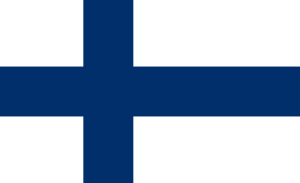Greece

Research in Greece is carried out primarily by Higher Education Institutions (HEIs) and Research Centers (RC). As of 2019, HEIs activities fall under the supervision of the Ministry of Education and Religious Affairs and RCs are supervised by the General Secretariat of Research and Technology (GSRT) of the Ministry of Development and Investments.
Initiatives
There are two national initiatives for Open Science at the moment in Greece:
- The General Secretariat of Research and Technology (GSRT) Working Group to support GSRT with the development of a national strategy on Open Science. (top-down) The goals are:
- to map the current situation at national and European level and the necessary measure for formulating a national OS strategy aligned with the ERA roadmap and other related documents,
- to present to the GSRT proposals regarding the potential involvement of other stakeholders at a later stage.
- The National Open Science Task Force consisted of representatives from 25 national academic and research institutions, research infrastructures, national nodes and Open Science initiatives. (bottom-up)
The task force has worked to draft a National Open Science Plan which is going to be released for public consultation in 2020. The initiative started as a bottom-up approach and is now supported by the General Secretariat of Research and Technology.
Policy
Greece has not implemented a national Open Access/ Open Science policy yet.
There are ongoing efforts by the National Open Science Task Force that worked to produce a National Open Science Plan. The plan includes provisions for open access to scientific outputs produced from publicly funded streams and for better access to and FAIR-aligned infrastructures and services also according to EOSC standards and rules of participation as they are coming. It also proposes a roadmap for implementation.
Open Access policies are at a nascent stage in Greece, but there are intensive efforts by OpenAIRE Greek NOADs to change the current situation. HEAL-Link and Athena Research Center produced a model Open Science policy template for Greek HEIs. The Greek model policy was developed based on the OpenAIRE policy templates which were modified according to the needs of the national academic library community as identified in a landscape review on policy and technical readiness. The Greek model policy has been presented to academic librarians to foster discussions and get feedback before being finalised.
Training
There are a number of stakeholders offering research support through informative or training events based on their expertise and area of influence, from discipline-specific through research infrastructure networks such as ELIXIR-GR, APOLLONIS, SODANET to more generic practices through public organisations and the OpenAIRE Greek NOADs.
Athena RC has initiated and leads a series of webinars on Open Science in Greek language in collaboration with the Cypriot NOAD. These events are organised on a monthly basis and have proven to be successful in uniting the academic and research community under the Open Science and the EOSC umbrella. In the context of Athena RC’s participation in the NI4OS-Europe project with significant involvement in the trainers network, more training events around Open Research Data Management and EOSC are expected to be delivered at the national level.









